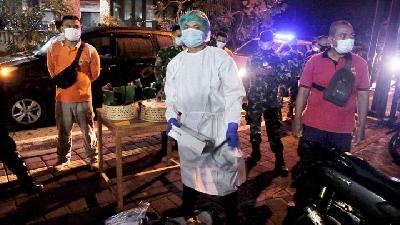Fragile
Monday, January 25, 2021
Viruses are wars without borders. There is no space or time that can be completely ordered and stabilized in indices and maps. Contagion and healing go on within traces of differing attitudes towards life, sickness, and death.
arsip tempo : 171336771173.

YESTERDAY one of my friends died from the virus—and this loss was not the first. Probably also not the last. Every day we hear news of contagion and death: Covid-19 has not yet stopped taking victims. The world is exhausted fighting it…
How fragile we are
How fragile we are
Of course Sting’s song speaks more about history being plagued by violence than humankind’s relationship to pandemics. But these days too the
...
Subscribe to continue reading.
We craft news with stories.
 For the benefits of subscribing to Digital Tempo, See More
For the benefits of subscribing to Digital Tempo, See More












